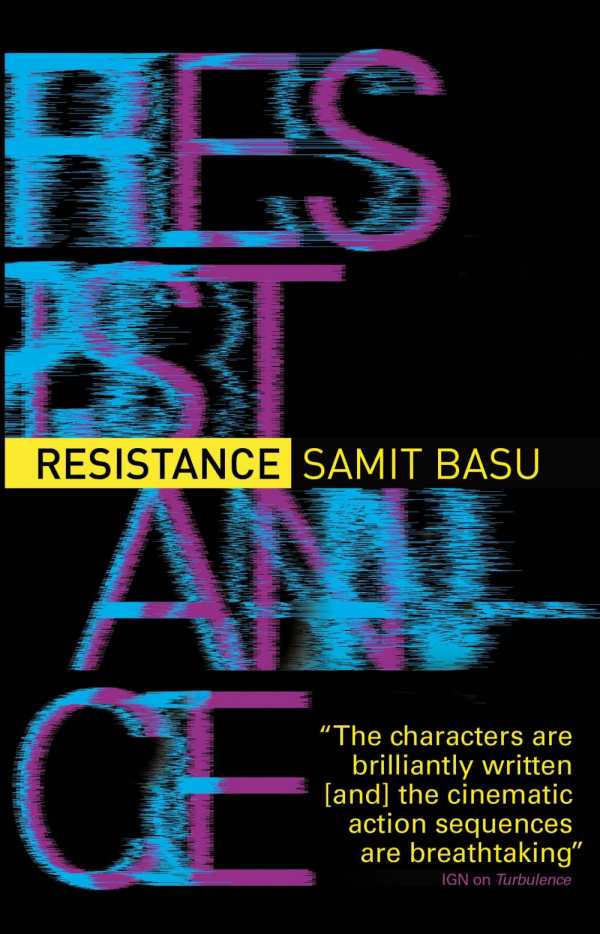Resistance
Self-referential humor creates a refreshing metafictional world that paves the way for a well-balanced and entertaining superpowered adventure.
Samit Basu is a wunderkind when it comes to action. His second adult novel, Resistance, delivers cinematic sequences and colorful supercharacters duking it out in a smoldering, crowded world. It all takes place in the same superpowered future of its predecessor, the well-received Turbulence; some can suddenly clone themselves or fly, others are indestructible and godlike, and still others are simply very ugly. In his treatment of a world gone posthuman, Basu raises subtle questions about the nature of government, the limits of control, and the future of a world that is messed up already.
When Resistance opens, massive monsters (kaiju) habitually slump toward innocent cities, gifted tech-youngsters suppress them in Transformer-like formation, superheroes and villains vie for primacy, and a shadowy corporation appropriately named Utopic is misruling the world. Who is a good guy? Is it the wealthy Norio or the creepy tech genius Aman? Who is a bad guy? Is it really the godlike Jai or the horse-headed little kid? And why on earth are all these people getting weird powers?
Unlike many action writers, Basu resists mushroom-clouding his creative skies with deadpan one-liners and Bruce Willis comebacks; instead, the characters speak like real people. They want things that make sense—even if they make us chuckle. One hero is obsessed with his online ratings as a crime fighter. Another jibes his overexplaining captor: “You kept me alive so you could talk to me before killing me? … You’re new at this.”
Meanwhile the narrator has his tongue firmly planted in cheek at all times: When the novel opens “a giant lobster … its hind limbs still under water, in defiance of biology, physics and all codes of lobster etiquette … strides toward Tokyo.” A ubiquitous, useless superhero is simply dubbed “That Guy.” When mutated insects attack a Prague building, that building is the Kafka Museum. This kind of self-referential quipping creates a refreshing metafictional world that paves the way for a multilevel reading or a superficial romp.
Indeed, throughout Resistance, Basu seems to wink at us, saying, sure, all of this is silly; but he’s still enjoying himself—and if you have a propensity for violence, robots, and political posturing, you will enjoy yourself too. Basu has written YA novels and graphic novels and collaborated on several projects with genre stars, including Terry Gilliam. His first adult novel, Turbulence, received rave reviews in the UK and won Wired’s Goldenbot Award as one of the best books in 2012.
Reviewed by
Leia Menlove
Disclosure: This article is not an endorsement, but a review. The publisher of this book provided free copies of the book to have their book reviewed by a professional reviewer. No fee was paid by the publisher for this review. Foreword Reviews only recommends books that we love. Foreword Magazine, Inc. is disclosing this in accordance with the Federal Trade Commission’s 16 CFR, Part 255.

